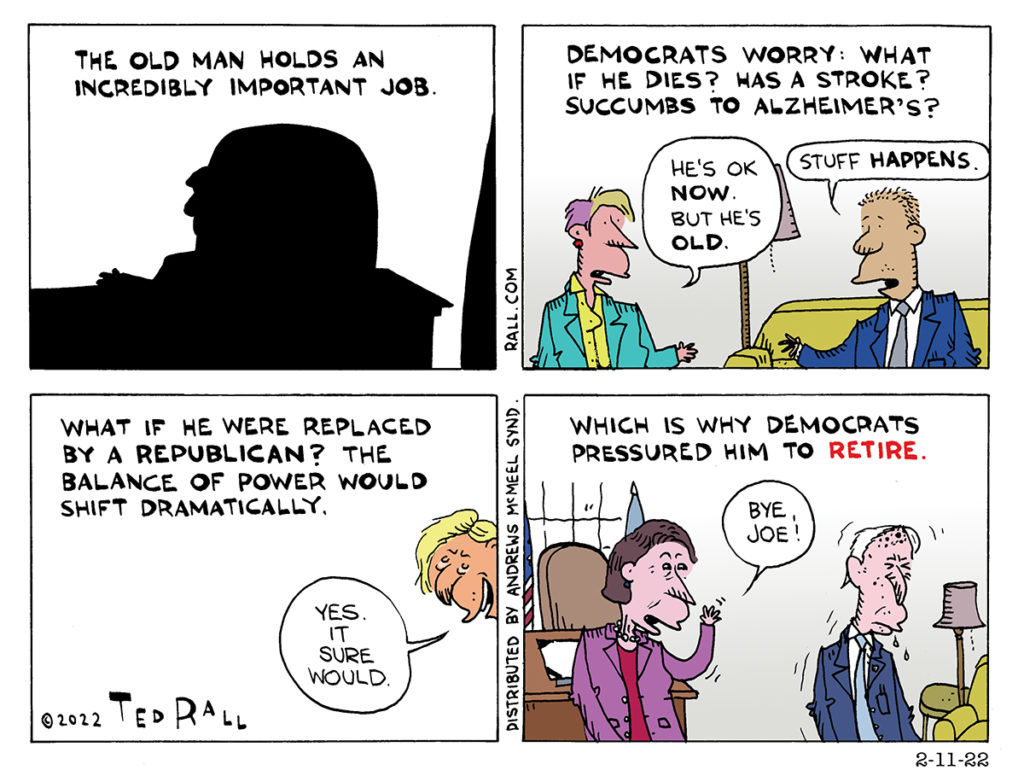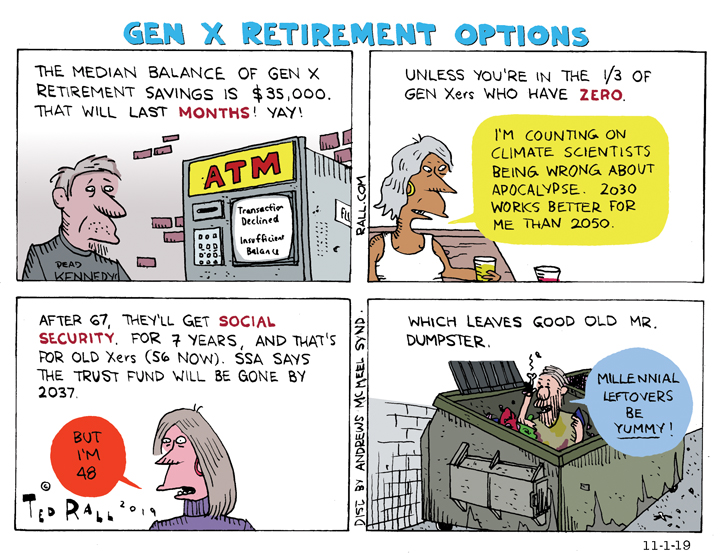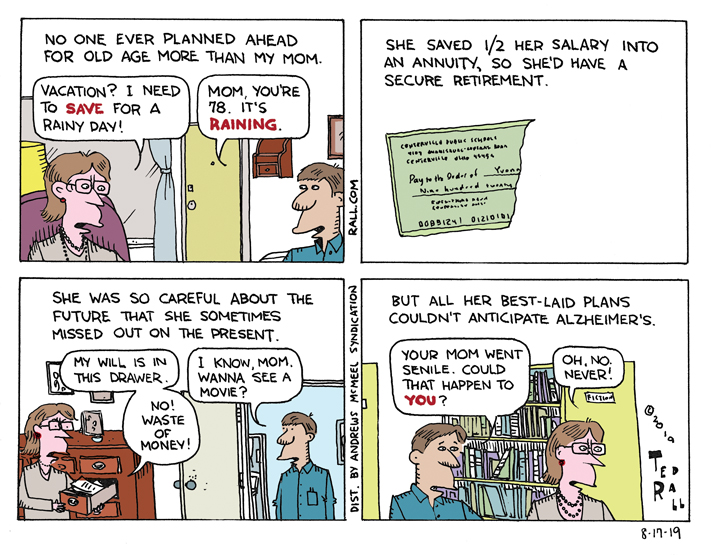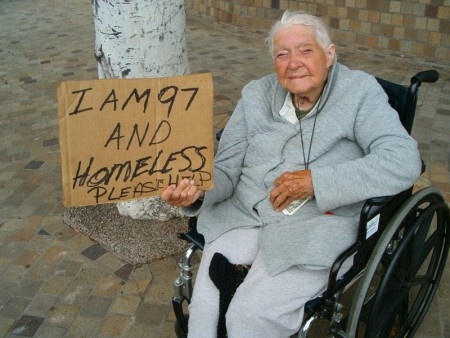Editorial cartoonists Ted Rall (Left) and Scott Stantis (Right) debate breaking news across the nation on a busy week.
Congress grilled the CEO of the Chinese-owned social-media app TikTok, reminding Ted of the PMRC hearings of the 1980s, another moment when Congress worked hard to appear anti-fun and out of touch. Scott calls China a “threat”; Ted prefers to see them as a “challenge.” What do we have to fear from TikTok, other than becoming even stupider?
France is burning in the wake of President Emmanuel Macron’s sop to the neo-liberal class: raising the national retirement age from 62 to 64. Scott asks Ted, a French citizen, why younger Frenchmen are demonstrating in solidarity with older people they have to support in old age? Ted addresses the fact that pension reform might have been greeted differently from a different, more populist president.
Manhattan DA Alvin Bragg didn’t file charges against Donald Trump last week, but next week might be different. Scott and Ted agree that an arrest will empower the former president. Ted takes a victory lap on calling for Trump wanting a perp walk last week. Scott deplores liberal gloating because it feeds into Trump’s narrative.
Watch the Video Version of the DMZ America Podcast:
DMZ America Podcast Ep 94 Sec 1: Is TikTok a Threat?
DMZ America Podcast Ep 94 Sec 2: France is Burning!
DMZ America Podcast Ep 94 Sec 3: The Non-Arrest of Donald J. Trump




 Two weeks ago Bernie Sanders announced his “right to a secure retirement” plan. The media didn’t notice, the voters didn’t care, no one’s talking about it. But the problem is huge and about to get huger. And the government isn’t doing jack. As I wrote a year ago in a
Two weeks ago Bernie Sanders announced his “right to a secure retirement” plan. The media didn’t notice, the voters didn’t care, no one’s talking about it. But the problem is huge and about to get huger. And the government isn’t doing jack. As I wrote a year ago in a 
